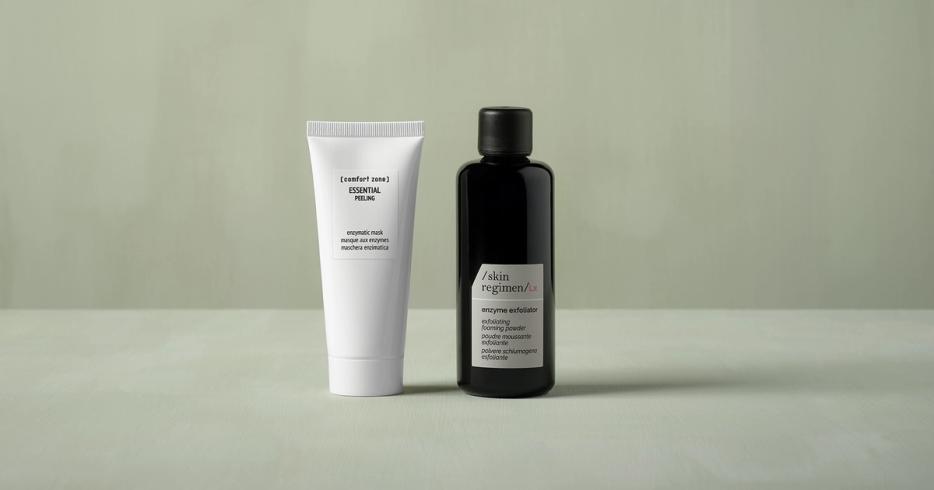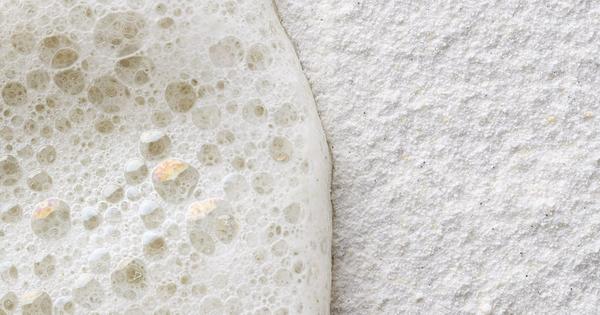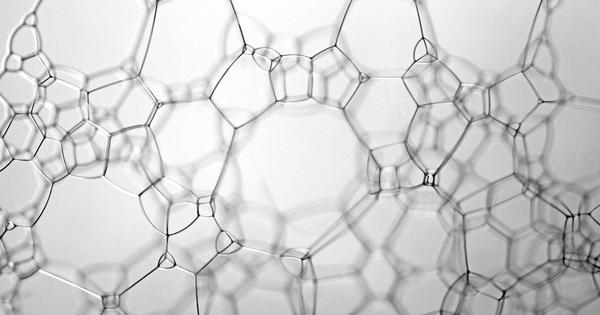Essential Scrub
Illuminating refining scrub
skin care
Eve Mérinville | Corporate RD Excellence & SC RD and Innovation Director
10 min read

Are you dealing with a shiny face before the clock hits lunchtime? Does your carefully applied makeup feel like it’s slipping away from your skin? Maybe you’ve explored a number of products, but nothing has provided a lasting solution to keep that persistent shine away. If you have ever asked the question, “Why does my skin insist on being so oily?” you are certainly not alone.
Oily skin is a very common concern shared by many. In this blog post, we are diving into its causes, unveiling effective management strategies, and introducing you to some Comfort Zone solutions that might just become your skin's new best friend.
In order to maintain healthy and radiant skin, you must first determine your skin type. Understanding your skin type allows you to determine which products to use in order to address your specific skin concerns effectively. The main skin types are dry, normal, combination, and oily.
Oily skin provides an excess amount of sebum—an oily substance that moisturizes and protects hair and skin. Too much oil can cause the skin to feel slick to the touch, leading to breakouts and blemishes, and causing enlarged pores.

Hormonal changes, particularly fluctuations in androgen levels, play a pivotal role in the health of our skin. Androgens are essential hormones involved in the growth and reproductive processes of both males and females. However, when these hormones surge to high levels, they can trigger an excess production of sebum, the skin's natural oil. This surplus oil can, in turn, lead to various skin concerns, including oily skin, visibly enlarged pores, and the unwelcome occurrence of frequent breakouts.
Keep in mind that the foundation for healthy skin begins internally. Foods containing high amounts of sugar, processed ingredients, and unhealthy fats may contribute to oily skin. Certain foods can stimulate the production of excess oil.
If you live in or frequently visit a humid climate, the excess moisture may contribute to an increase in the skin’s oil production, resulting in clogged pores and breakouts.
Your oily skin might be the result of overusing skincare products or using products that are not suitable for your skin type. It is important to select products tailored to your skin type and to use them in moderation, so as not to disrupt the skin’s natural balance.
When experiencing stress, the body begins to make cortisol. This signals to your glands that they need to produce more oil, leading to oily skin and potential breakouts.

Like any skin type, oily skin has both advantages and challenges. Recognizing the pros and cons can help you appreciate and manage your skin effectively.
| ADVANTAGES | DISADVANTAGES | |
| Stress not—there are several advantages to having oily skin. The excess sebum produced by the skin acts as a natural protection from harsh environmental factors. Additionally, the natural oils help keep the skin soft and hydrated, making the skin less prone to wrinkles. As an added perk, oily skin eliminates the concern of dealing with dry, flaky skin. | Oily skin often comes with the challenge of acne-prone skin, a shiny complexion, and enlarged pores. Clogged pores often result in breakouts, pimples, blackheads, and a shinier complexion that can appear greasy. |
Use a gentle cleanser and warm water both morning and night. Select a cleanser designed for oily or acne-prone skin, is fragrance-free, and doesn’t contain harsh ingredients. To further help remove stubborn acne or enlarged pores, opt for double cleansing—first with an oil-based cleanser and again with a water-based cleanser.
When oily skin is dehydrated, it will begin to overcompensate and produce more oil. Use a lightweight, oil-free moisturizer to maintain the skin’s moisture throughout the day.
Keep blotting papers or sheets handy to absorb excess oil throughout the day without disrupting your makeup. Leave it on for a few seconds to absorb the oil. This is an easy way to instantly get rid of excess shine and stay refreshed.
Incorporating a regular exfoliation routine into your skincare regimen will help remove the dead skin cells that build up on the surface. If dead skin and other debris are not removed, your pores can become blocked, leading to breakouts or oily skin. Consider products with salicylic acid—an ingredient known for treating acne and unclogging pores.
If you’re struggling to manage oily skin despite following a proper routine, consider consulting a dermatologist who can provide a customized treatment plan to help you address your concerns effectively.
Comfort Zone’s oily skin products are designed to provide effective solutions that help manage oil production, while gently cleansing and hydrating the skin for a matte look. Here's a selection of our offerings designed to address the specific needs of oily skin:

Oily skin may be caused by a variety of factors, including hormones, diet, environment, or stress. While the production of sebum is beneficial to our skin, too much of it can be a cause for concern, resulting in clogged pores and breakouts. You may not be able to turn off your sebaceous glands, but you can manage oily skin with a proper skincare routine and lifestyle choices.
Comfort Zone is committed to providing effective products to help address the concerns of different skin types and conditions so you can achieve a healthy, radiant complexion.
Illuminating refining scrub
Purifying cleansing gel
Exfoliating lotion